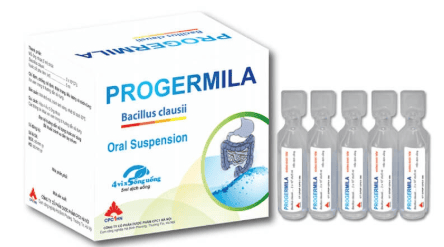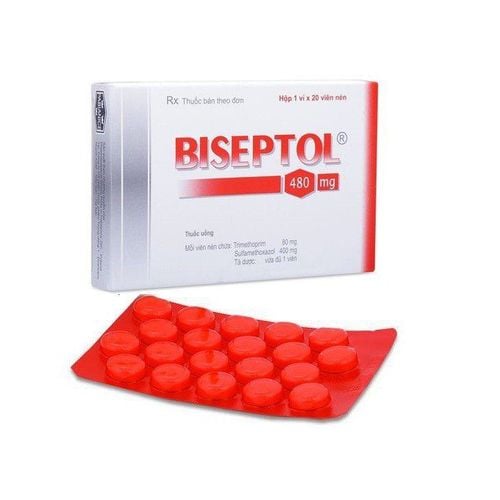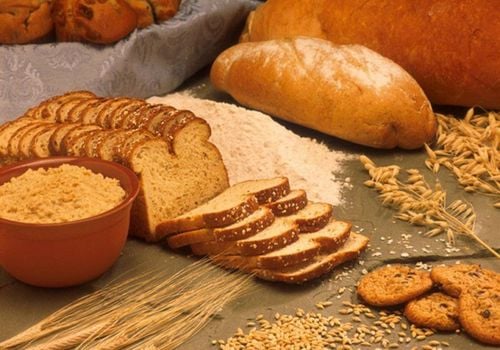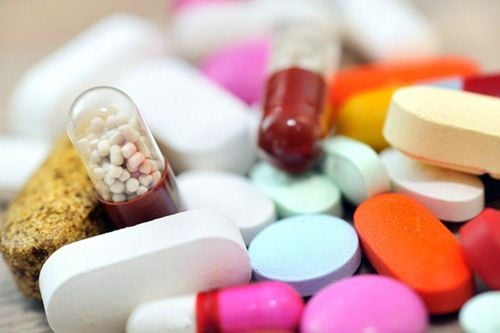This is an automatically translated article.
Posted by Master, Doctor Mai Vien Phuong - Department of Examination & Internal Medicine - Vinmec Central Park International General Hospital
A healthy diet means eating a variety of nutritious foods. However, people with irritable bowel syndrome (IBS) may find that certain foods cause unpleasant digestive symptoms. Specific foods that trigger IBS are different for different people, so it's impossible to create a list of foods to avoid. Here are 12 foods that can make your irritable bowel syndrome worse.
1. Insoluble fiber
Fiber adds to the diet and in general, it helps keep the gut healthy. Foods rich in fiber include:
Grains Vegetables Fruits There are two types of fiber found in foods:
Insoluble Soluble Most plant foods contain both insoluble fiber and soluble, but some foods are high in fiber.
Soluble fiber is concentrated in beans, fruits and oat products.
Insoluble fiber is concentrated in whole grain products and vegetables.
Insoluble fiber, such as wheat bran, can make pain and bloating worse.
Fiber tolerance is different in different people. Foods high in insoluble fiber can worsen symptoms in some people, but others with irritable bowel syndrome have no problem with these foods. Additionally, certain foods rich in soluble fiber, like beans, can cause problems for some people with irritable bowel syndrome.
If foods like this cause symptoms, try a soluble fiber supplement instead.

2. Gluten
Gluten is a group of proteins found in grains including rye, wheat and barley, which can cause problems for some people with irritable bowel syndrome.
Some people's bodies have a severe immune reaction to gluten, known as celiac disease. Others may be gluten intolerant. These conditions share symptoms with irritable bowel syndrome, mainly diarrhea.
Celiac disease is an autoimmune disorder. It affects the intestinal cells, leading to poor absorption of nutrients. The cause of gluten intolerance, or non-celiac gluten sensitivity, is less well-defined.
According to a 2015 study, research shows that a gluten-free diet can improve irritable bowel syndrome symptoms in about half of the people studied.
Some doctors recommend that people with irritable bowel syndrome try avoiding gluten to see if their symptoms improve. If you find that gluten makes your symptoms worse, you may want to try a gluten-free diet.
The good news is that more and more gluten-free products are hitting the market at a fast pace. If you can't do without pizza, pasta, cakes, or cookies, you can always substitute them with gluten-free options.
Furthermore, there are many whole, nutritious alternatives to gluten-containing grains and flours, including: Quinoa, sorghum, oats, buckwheat, almond flour, coconut flour
3. Milk
Milk can cause problems in people with irritable bowel syndrome for a number of reasons.
First, many dairy products are high in fat, which can lead to diarrhea. Switching to low-fat or fat-free milk may ease your symptoms.
Second, many people with IBS report that dairy is the cause of their symptoms, although it's unclear whether people with IBS are more likely to have true lactose intolerance. or not.
If you feel milk or dairy products are causing digestive upset, consider switching to dairy alternatives, such as plant milks and soy cheeses .

4. Fried food
Chips and other fried foods are very common in the typical Western diet. However, eating too much can cause health problems. The high fat content can be hard on the system for people with irritable bowel syndrome.
Fried foods can actually change the chemical composition of the food, making it harder to digest, leading to unpleasant digestive symptoms.
For a healthier option, try baking or grilling your favorite foods.
5. Beans and legumes
Beans, lentils and peas are generally great sources of protein and fiber, but they can cause irritable bowel syndrome symptoms. They contain compounds called oligosaccharides that are resistant to digestion by intestinal enzymes.
While beans can increase stool volume causing constipation, they also increase: Bloating, bloating, cramping
6. Caffeinated Beverages
Some people swear they drink their morning coffee for regular digestion. But like all caffeinated beverages, coffee has a stimulant effect on the intestines that can cause diarrhea.
Coffee, soft drinks and energy drinks that contain caffeine can be triggers for irritable bowel syndrome.
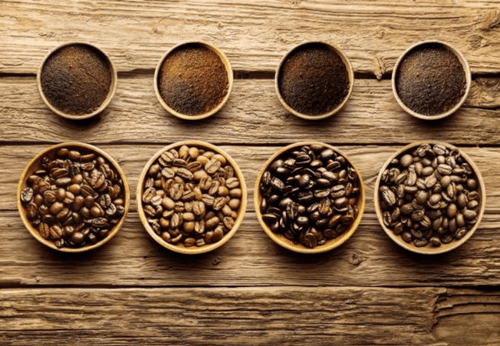
7. Processed foods
Processed foods tend to be high in: Salt, sugar, fat
Examples of processed foods include: French fries, processed meats, deep fried foods
Eating too much of these ingredients can lead to health problems for anyone. In addition, they often contain additives or preservatives that can cause flare-ups of irritable bowel syndrome.
8. Sugar-free sweetener
Sugar-free doesn't mean it's good for your health - especially when it comes to irritable bowel syndrome.
Sugar-free sweeteners are common in:
Sugar-free sweets Gum Most diet drinks Mouthwash
9. Chocolate
Chocolate bars and candies can trigger irritable bowel syndrome because they are often high in fat and sugar, often containing lactose and caffeine. Some people become constipated after eating chocolate.
There are several vegan options for chocolate lovers that people with irritable bowel syndrome often find more tolerable.
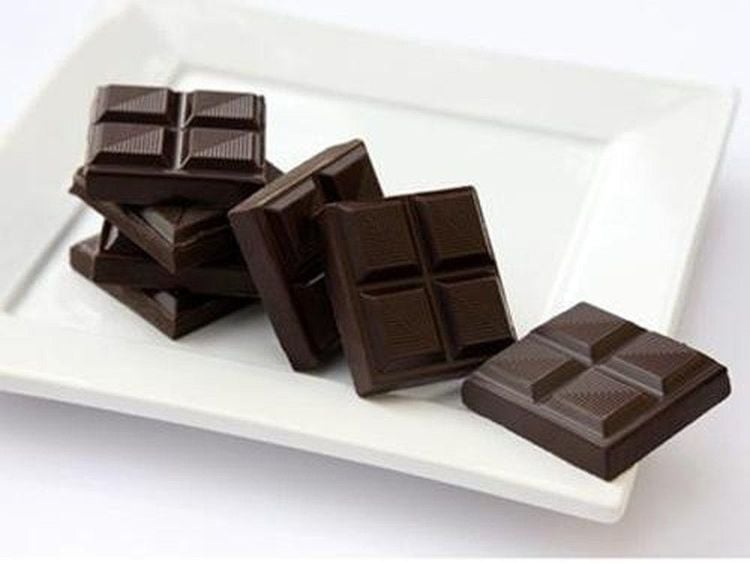
10. Alcohol
Alcohol is a common cause for people with irritable bowel syndrome. This is due to the way the body digests alcohol. In addition, alcohol can lead to dehydration, which affects digestion.
Beer is a particularly risky choice because it often contains gluten, and wine and mixed drinks can contain high amounts of sugar.
Limiting alcoholic beverages can help reduce symptoms associated with irritable bowel syndrome. If you choose to drink alcohol, consider a gluten-free beer or a drink that's mixed with a simple seltzer and without artificial sweeteners or added sugar.
11. Garlic and Onions
Garlic and onions are great flavoring agents for your food, but they can also be hard on your gut, causing gas.
Vaginal discharge and cramps can be caused by raw garlic and onions, and even cooked foods can cause them.
12. Broccoli and Cauliflower
Broccoli and cauliflower are hard for the body to digest - that's why they can cause symptoms in people with irritable bowel syndrome.
When your intestines break down these foods, it causes gas and sometimes constipation, even for people who don't have irritable bowel syndrome.
Cooking vegetables makes them easier to digest, so try roasting or sautéing broccoli and cauliflower if eating raw will upset your digestive system.
Conclusion
It is important to remember that everyone's digestive and dietary triggers are different. Some people with irritable bowel syndrome can tolerate foods that others cannot.
Get to know your body and learn what foods make you feel your best and limit those that cause uncomfortable symptoms.
Keeping a food and symptom diary can help you figure out what foods to eat and avoid.
If you need more help with your diet regarding irritable bowel syndrome, making an appointment with a registered dietitian is a good option.
Any questions that need to be answered by a specialist doctor as well as customers wishing to be examined and treated at Vinmec International General Hospital, please register for an online examination on the Website for the best service.
Please dial HOTLINE for more information or register for an appointment HERE. Download MyVinmec app to make appointments faster and to manage your bookings easily.
ReferencesCancarevic I, et al. (2020). Is there a correlation between irritable bowel syndrome and lactose intolerance? DOI: 10.7759/cureus.6710 Eating, diet, & nutrition for irritable bowel syndrome. (2017). niddk.nih.gov/health-information/digestive-diseases/irritable-bowel-syndrome/eating-diet-nutrition Ford AC, et al. (2018). American College of Gastroenterology monograph on management of irritable bowel syndrome. gi.org/wp-content/uploads/2018/07/IBS-Monograph-2018.pdf Gentry J, et al. (2017). Gluten-free diet for irritable bowel syndrome. aafp.org/afp/2017/0701/p52.html IBS diet: The foods you can eat. (2006). badgut.org/information-centre/health-nutrition/ibs-the-foods-you-can-eat/






